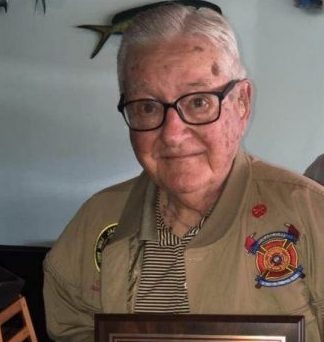Recording your parents, grand-parents, oldest aunts, uncles, cousins or even great-grand-parents before they pass away is one of the major things we should all hope to do in our journey in writing family histories. There is nothing more powerful than seeing and/or hearing about history from those who lived it. Granted their recollections may not be accurate or even mostly the truth but still having a digital record to pass onto your grandchildren is priceless. And with today’s smartphones that can do audio memo recordings, take videos as well as pictures of pictures in photo albums it is easier and less expensive to get them done. The only thing stopping you is making the time to get it done. You might want to start by just writing down your initial questions to get the interview going and to keep the person on track as well. If you are going to publish these interviews to the public you will need to get their signed consent. Yes, that means even grandma has to sign for you.
Now the first thing we would suggest that you do is research a little about the time period you are interviewing your relative about. Do you know what was happening in the news during this time? What stores were in their neighborhood at that time? What kinds of cars were being driven?, etc. All of these will help them stay focused on the story and the timeline in question. Also, it makes for a nice filler in your story. Second, you will want to schedule the interview at a time and day that is most convenient for everyone involved. Some older individuals don’t get up until a certain time, have to go to bed or take a nap at a certain time and others just remember better during certain hours of the day. Third, you will want to be sitting at a comfortable table with some kind of beverage and a snack. Fourth, you will want to have the camera already setup and ready to go before your interviewee sits down. The room should also be as sound proof as possible or just empty of everyone but you and them. Lastly, if you need the person to sign a form please explain what it is, why they need to sign and keep it on file for a while. That is to protect them and you in the future.
Once you and the interviewee are settled down and the small talk is done it is time for the interview to begin. Try to be very comfortable with getting the recording equipment to turn on in an unobtrusive manner as possible. That will help them relax quickly, and, hopefully, enable them to forget that the recording equipment is not even there. Once everything is done and you are happy with your recording it is time to pack up and go. Don’t forget to thank the interviewee for their help and if they would like a copy, of course, offer it to them for free. It is just good manners and it doesn’t have to be the professionally finished product just a recording that they can access on DVD or on their smartphone if they have one and that they can share with their friends and the other family members.
Sign Up for Our Monthly Newsletter for Writers and Readers
****We have shut down our Remembrance Website Creation Services on this page. If you would like to have your own Remembrance site created please visit our Webs and Blogs For Writers and Small Business Web Design Service****



